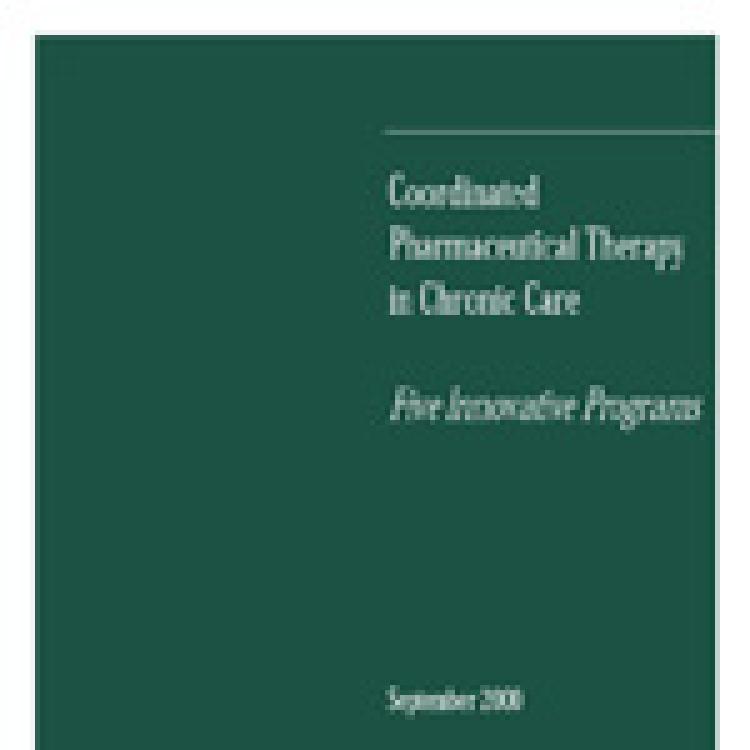Author: National Pharmaceutical Council
Improving the coordination of pharmaceutical care, especially for elderly and other chronic care patients, has a great potential to improve their treatments and overall cost savings. These groups consume a disproportionate share of health care expenditures, including pharmaceuticals. They usually have several coexisting diseases and are at risk for adverse consequences due to their compromised physiological status, and for interactions of prescriptions from several physicians. Their pharmacological needs require access to a broad range of medications and an individualized approach to care.
The report identifies five diverse and successful models of coordinated pharmaceutical care for these and other patients at high risk for suboptimal treatment. These approaches illustrate that coordinated pharmacotherapy can be implemented effectively across a variety of health care organizations. Many of the programs have resulted in improved outcomes and/or reduced overall costs of care.An accompanying fact sheet and executive summary are available.
